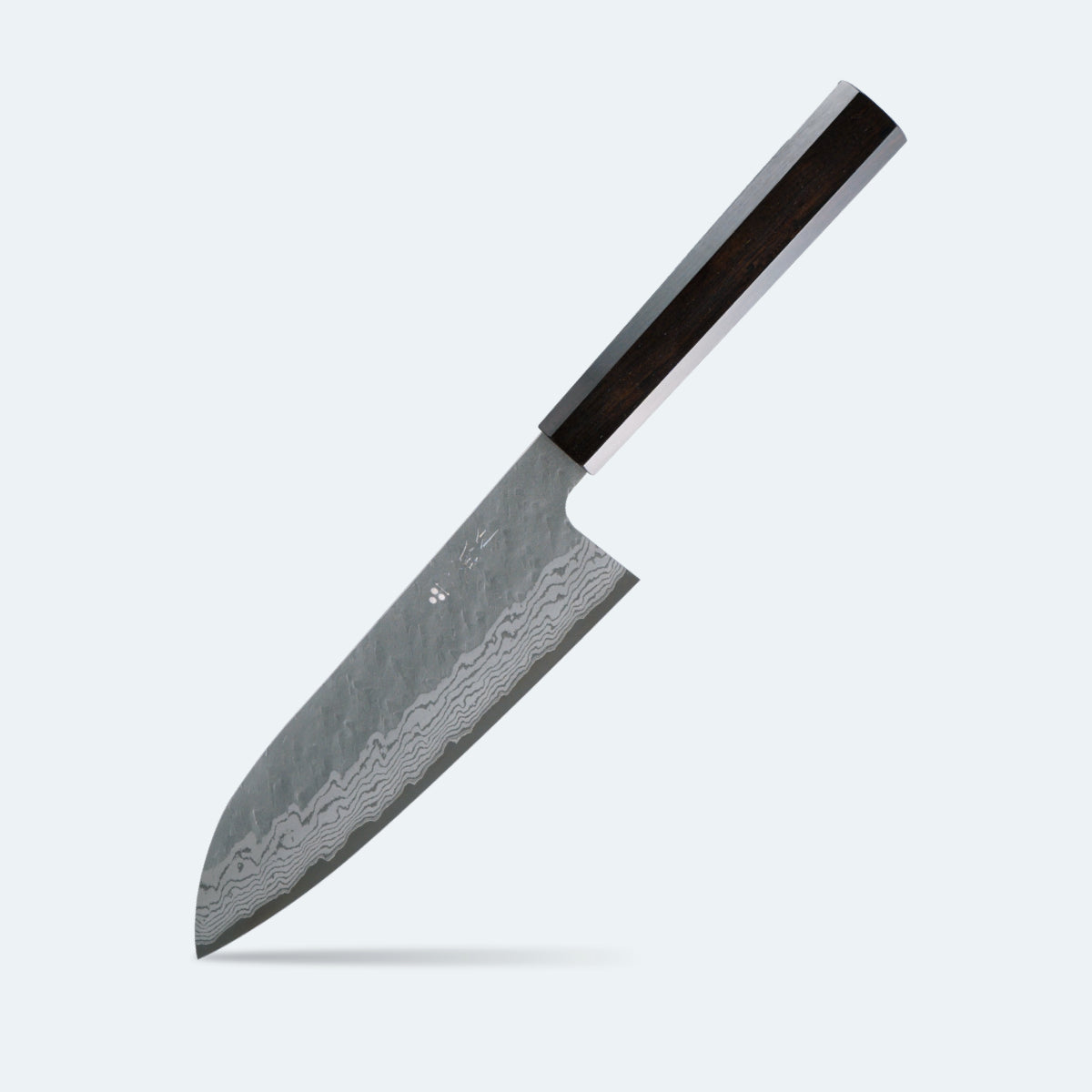
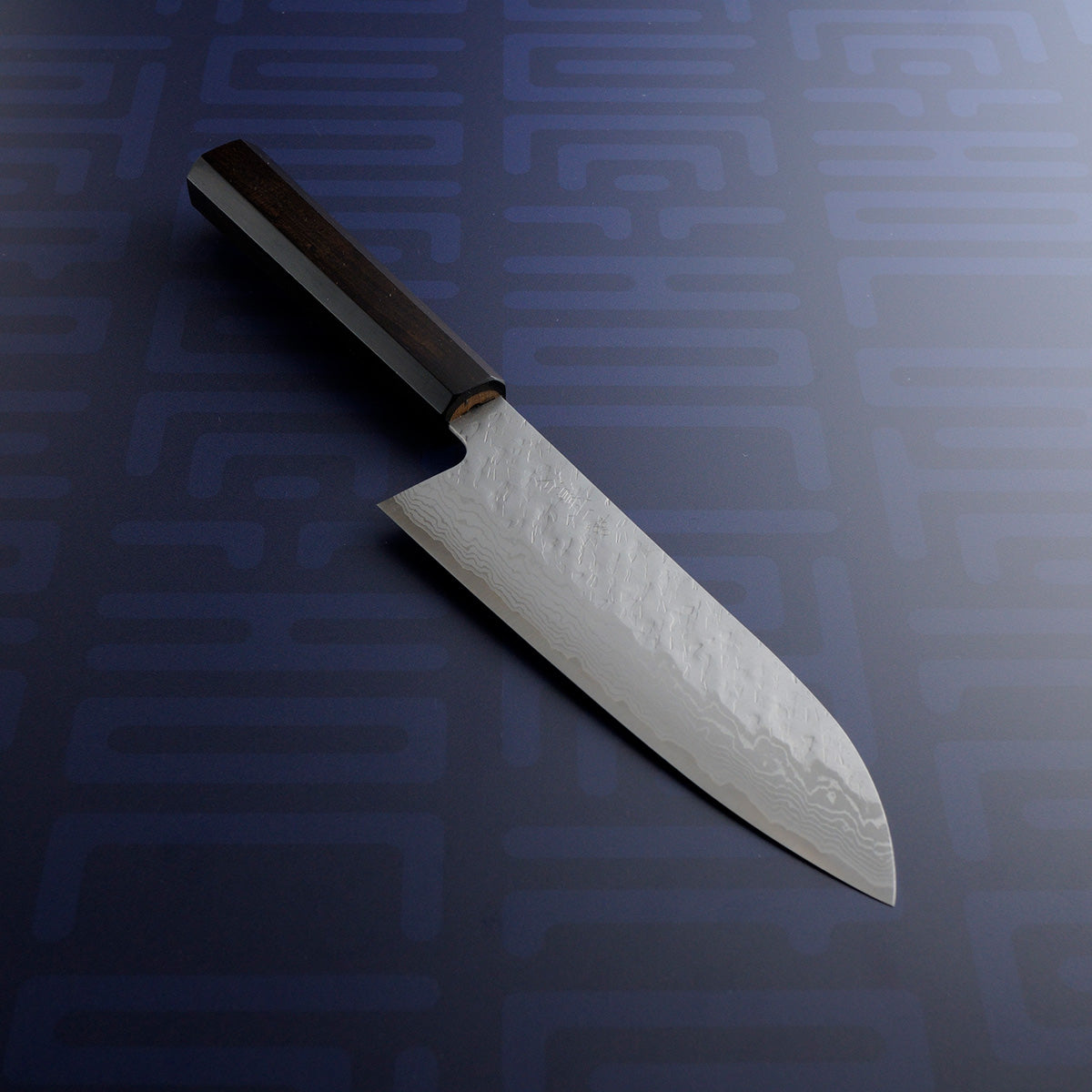
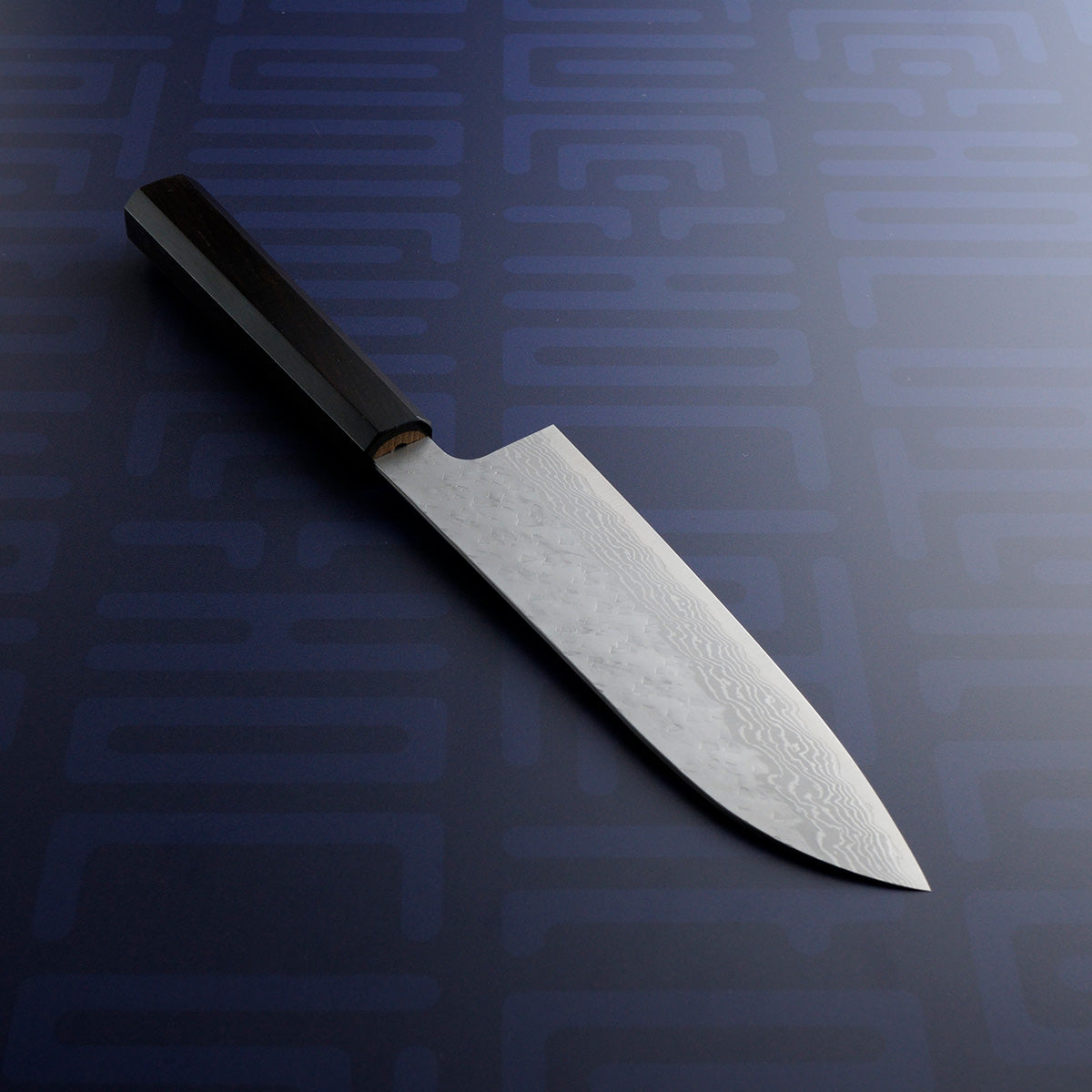
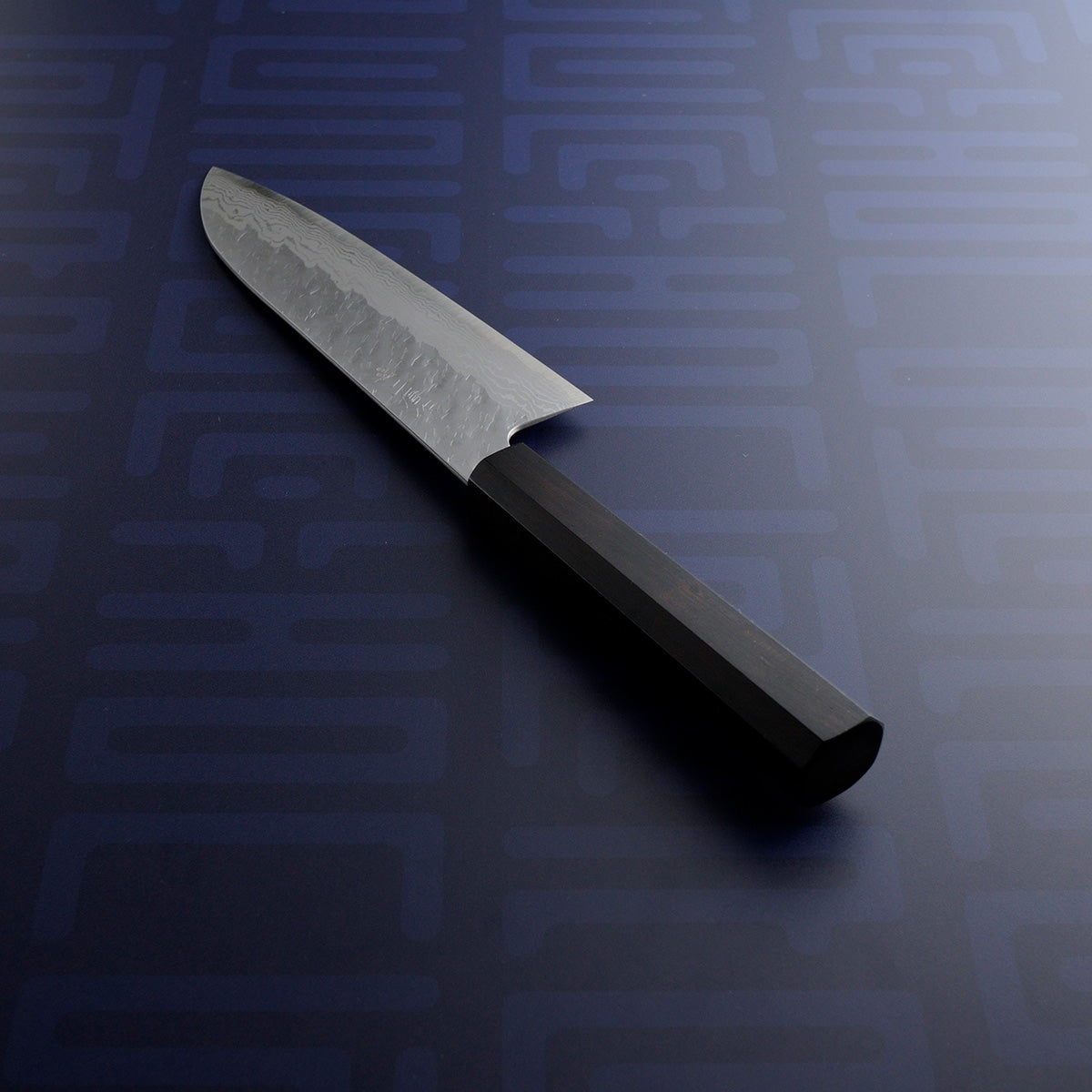
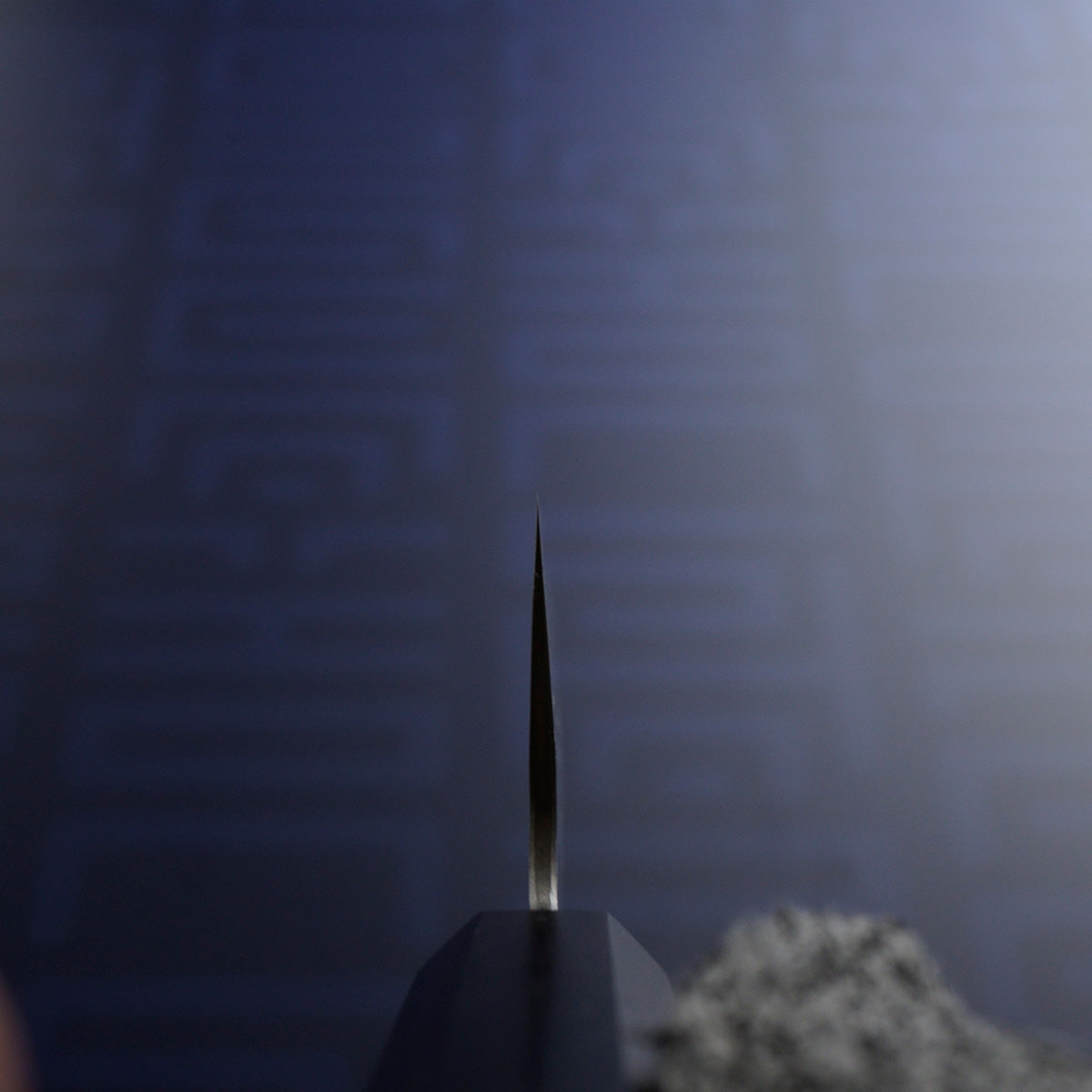
Nigara Hamono Migaki Tsuchime Damascus VG10 - Santoku 180mm Ebony handle
Pairs well with

Nigara Hamono Migaki Tsuchime Damascus VG10 - Santoku 180mm Ebony handle
If you have any questions, you are always welcome to contact us. We'll get back to you as soon as possible, within 24 hours on weekdays.
-
Shipping Information
- Delivery Time: Orders are delivered within 2-3 days, except on Sundays.
- Shipping Fee: Local shipping within the UAE is AED 10. Enjoy free shipping on orders over AED 300.
-
Payment options
- Cash on Delivery (COD): Pay for your order upon delivery.
- Secure Online Payment: Pay using your credit card through our secure online payment system.
-
Contact Us
- Phone number: +971585686373
- Email: info@sharpedgenation.com
Product details
Description
Nigara Hamono's origins can be traced back to Samurai times. For over 350 years, this family has been creating swords and knives, keeping the tradition alive by passing it down from father to son. The current (8th) generation blacksmith, Tsuyoshi Yoshizawa, learns the ropes from his father, Toshiju, and produces unparalleled knives. The VG10 series by Nigara Hamono showcases a matte polish and hammered pattern, demonstrating the utmost attention to detail. These knives are truly special due to the use of VG10, which is renowned for its durability and ease of sharpening. The core of the knife is safeguarded by layers of softer stainless steel, blending functionality with beauty. The unique finish and dimples also prevent food from sticking while cutting, making these knives a true kitchen essential.
Specifications
Care & Maintenance
Included in the Box
Santoku knife
Blade Guard
FAQs
Please read our FAQs page to find out more.
What is the best way to sharpen my knife?
The best way to sharpen your knife is by using a whetstone. It's a traditional method that provides excellent results. Alternatively, you can use a knife sharpener or take your knives to a professional sharpening service.
How do I properly care for my knives?
To properly care for your knives, hand wash them with mild soap and water, dry them immediately, and store them in a knife block or on a magnetic strip. Avoid putting them in the dishwasher, as the high heat and detergents can damage the blade and handle.
What types of knives do I need in my kitchen?
Essential knives for any kitchen include a chef's knife, a paring knife, a serrated bread knife, and a utility knife. These knives cover a wide range of tasks, from chopping vegetables to slicing bread and delicate peeling.
How do I choose the right knife for me?
Choosing the right knife depends on your cooking style and preferences. Consider the blade material, handle comfort, weight, and balance. It's often helpful to handle a knife before purchasing to ensure it feels comfortable and suits your needs.
What is the difference between forged and stamped knives?
Forged knives are made from a single piece of steel, heated and then shaped, resulting in a heavier, more durable knife. Stamped knives are cut from a sheet of steel and tend to be lighter and less expensive. Both types have their advantages, depending on your cooking requirements.